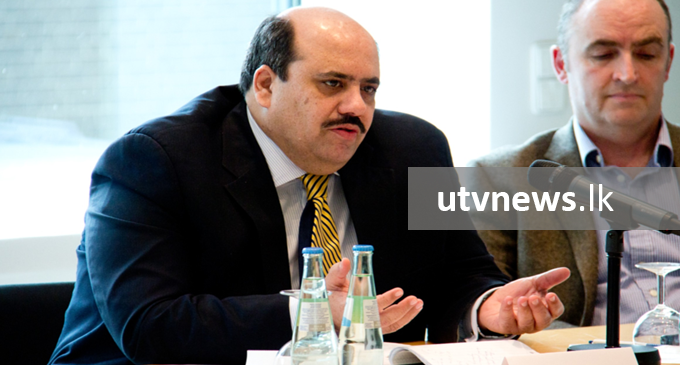(UTV|COLOMBO) – The migration of Daesh fighters from Syria and Iraq to Afghanistan has posed a severe national security challenge to South Asian states. From there, the militant group has been gradually spreading its tentacles in the entire region. Recently, it conducted hit-and-run raids and suicide attacks in Pakistan, Sri Lanka, as well as in India.
On March 23, US-backed Kurdish-led Syrian Democratic Forces in Syria announced they had liberated Baghouz, a village in eastern Syria, the last pocket of territory held by Daesh in the country. But the erasing of the militant group’s sanctuary in Syria has not mitigated its global agenda. Therefore, US President Donald Trump intends to pull out quicker from Afghanistan which has disturbed not only the Afghan ruling elite but has also alarmed American security analysts and Afghanistan’s neighbors.
Afghan security forces’ inability to fill the power vacuum that will emerge after US and NATO troops withdraw from the country is indeed cause for worry. Besides, the Afghan army is unable and unequipped to verify the increasing Daesh presence in the country.
US-led NATO forces targeted Daesh in Afghanistan in 2017, bombing a hideout for them and eventually killing Abu Sayed, the head of the group in Afghanistan. To the world, it was announced that Daesh in Afghanistan was a spent force.
But this year in April, Daesh claimed responsibility for suicide bombings in Pakistan’s southwestern city of Quetta which killed 21 people, and for the Easter Day bombings in Sri Lanka where over 250 people died.
Like Al-Qaeda, Daesh is comfortably increasing its influence in South Asia due to local militant groups’ willingness to coalesce with it for pursuing their own nefarious objectives, and many groups with overlapping goals have already announced their allegiance to it.
Currently, Pakistan’s National Action Plan, the country’s primary counter-terrorism blueprint is in full swing. On May 11, the Interior Ministry of Pakistan placed ten more organizations on its list of proscribed outfits. But the banning of militant organizations and the arrests of a few will not erase the danger of militant groups cadres.
Recent attacks must ring serious alarm bells because, despite the destruction of their so-called caliphate, Daesh militants in our region are actively regrouping.
Dr. Zafar Nawaz Jaspal
Many of them have already announced their allegiance to Daesh for the sake of their survival and clandestine illegal business activities. The newest challenge for Pakistani law enforcement agencies is that the Pakistani Taliban, Tehrik-e-Taliban Pakistan (TTP), is providing both leadership and sanctuary to Daesh militants in Afghanistan.
Former TTP commander Hafiz Saeed Khan was announced leader of the Daesh of Khorasan Province in January 2015 until his death in 2016. Thus, the alliance between two militant organizations based in Afghanistan with their sympathizers in Pakistan constitutes a very dangerous nexus to internal and regional security.
India is equally vulnerable due to the increasing presence of Daesh in the region. On May 10th, Daesh’s Amaq News Agency announced that it had established a province— the Wilayah of Hind— in India. Just last week, Daesh fighters had an encounter with Indian troops in the town of Amshipora in the Shopian district of Indian administered Kashmir.
The fact is, Daesh’s increasing presence in South Asian states, especially having headquarters in Afghanistan and some allies in Pakistan, Sri Lanka, and India, is terrifying for the region. Recent attacks must ring serious alarm bells because, despite the destruction of their so-called caliphate, Daesh militants in our region are actively regrouping.
This falsifies the 2017 US claim that the militant group no longer had any power left in Afghanistan. It does, and it is using it.
Widespread mistrust between New Delhi, Islamabad, and Kabul play to the advantage of radicalized militant groups operating in the region. These local groups continuously manipulate mistrust among regional actors for establishing and operationalizing their cells in the entire region. Therefore, it is imperative that South Asian governments think outside of the box and chalk out a joint action plan to combat the rising threat of Daesh-led radicalized militant groups in the region. It is not wise to underestimate this enemy yet.
– Dr. Zafar Nawaz Jaspal is an Islamabad-based analyst and professor at the School of Politics and International Relations, Quaid-i-Azam University.
E-mail: jaspal_99@hotmail.com
[alert color=”faebcc” icon=”fa-commenting”]Keeping up to date with breaking news while you are on the move is now simple with UTV Alerts [textmarker color=”8a6d3b”]Type REG UTV and send to 77000[/textmarker] on your Dialog, Airtel, or Hutch mobile connection[/alert]
[textmarker color=”Disclaimer: Views expressed by writers in this section are their own and do not necessarily reflect UTV News’ point-of-viewundefined”]undefined[/textmarker]

